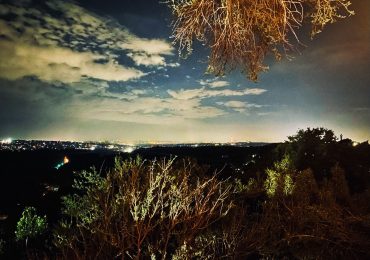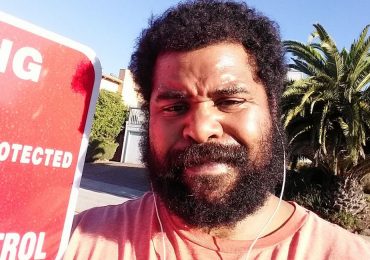Poet Johann de Lange has turned down his 2021 South African Literary Award, calling the prizes ‘meaningless and worthless’ (‘betekenis en waardeloos’), and criticising the ‘clumsy, ignorant’ (‘lomp, onkundige’) prize administration.
SALA Convener and Project Director Morakabe ‘Raks’ Seakhoa responded in a press release, saying the prize ‘accepts and respects’ De Lange’s decision ‘with great reluctance’.
Now in their sixteenth year, the SALAs are awarded annually by the wRite Associates and the Department of Arts and Culture. The prize seeks to:
pay tribute to South African writers who have distinguished themselves as groundbreaking producers and creators of literature, while celebrating literary excellence in the depiction and sharing of South Africa’s histories, value systems, philosophies and art as inscribed and preserved in all the official languages of South Africa.
Earlier this month, De Lange was named one of the winners of a South African Literary Award for Poetry for his collection Die meeste sterre is lankal dood. He was one of six poets to receive the award this year, from a shortlist of seven.
The other 2021 winners were Ayanda Billie, KwaNobuhle Overcast (English), Babalwa Fatyi, Hlahl’indlela Nohombile (isiXhosa), Kgwadi Kgwadi, Ithuteng Mogolokwane (Setswana), Nndanduleni Mulaudzi, Khonadzeo (Tshivenda) and Tshepiso Makgoloane, Tša maAfrika (Sepedi).
It is not unusual for SALA judges to name more than one winner per category—in fact it is common for two or three writers to share a SALA. However, this year’s Poetry Award was the first time such a large number of co-winners was announced.
In a letter published on the Afrikaans poetry website Versindaba, De Lange expressed disappointment at the fact that while advance publicity for the award stated that the prize money was R60,000, he was later informed that he would have to share this amount with his fellow winners. De Lange called this ‘misleading and dishonest’ (‘misleidend en oneerlik’), and said he believes it indicates that SALA management are not in control of the prize processes.
De Lange also said it was problematic to judge poetry in different languages in the same category, adding that he believes it would be more logical to designate a winner in each language. He continues, as translated from the Afrikaans:
Instead, it would appear that the selectors had a problem nominating a single winner, and each wanted to see their language as the winner. This situation was exacerbated by the SALA management’s decision to keep everyone happy and to divide the prize money surreptitiously among all the ‘winners’. The failure of this year’s awards has to do, among other things, with selectors’ inability to nominate a clear winner.
I have sympathy with the other poets and writers. This tameletjie [‘sticky situation’] is not their creation, but the clumsy, ignorant administration of SALA. As a result, the SALA prizes are meaningless and worthless, and should not be taken seriously.
In the press release responding to De Lange’s letter, Seakhoa said: ‘Regrettably, Mr De Lange is incorrect to think of SALA as a competition. Instead, it is a celebration of the literary craft as an instrument of artistic, creative and cultural expression within the context of our diverse and multicultural society.’
Seakhoa added that the prize adjudication panels are made up of ‘respected academics, cultural and language professionals who can by no means be referred to as “clumsy” or “ignorant”.’
Seakhoa stated that SALA stood by the adjudication panel’s decision to award six winners in the poetry category, adding: ‘These winners were selected on the strength of the literary merit of their works, and not because they represent any particular language. In our collective view, which we are confident resonates with wider society, there is no one language that is greater than or subordinate to the other.’
He concluded by saying SALA ‘regretted’ that they could not award each winner prize money ‘greater than the equitable share of the R60,000 pool’, and wished De Lange ‘well in his literary endeavours’, calling him ‘one of the voices of our time’.






I do not know enough about this poet to contemplate why he would snub a Literary Award so I will not comment on it. I would however like to know is A can a US citizen submit to any Poetry/Literary Journals in South Africa for possible publication? And B if so which ones?